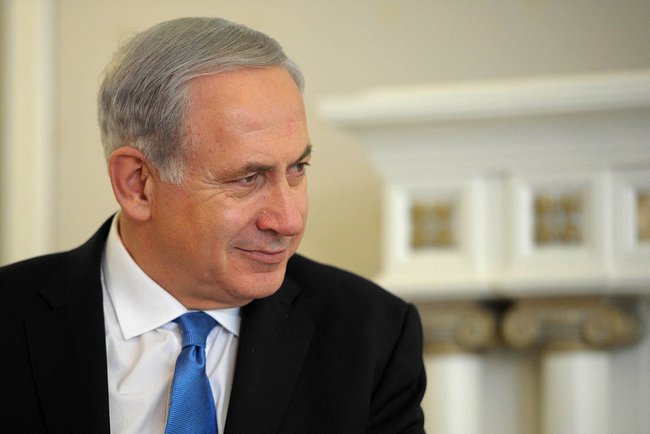Israeli forces target Hamas strongholds; US pushes for Gaza post-war plan and broader regional peace deal
An Israeli airstrike killed 31 people in central Gaza on Sunday, according to the Palestinian territory’s civil defence agency. The attack coincided with US National Security Advisor Jake Sullivan’s visit to Israel for talks on the ongoing conflict. Israeli troops have advanced on Rafah, the last Hamas stronghold in the Gaza Strip, where 800,000 civilians have been displaced.
The Ezzedine Al-Qassam Brigades, Hamas’s armed wing, targeted Israeli forces at the Rafah crossing with mortar fire. The Israeli military reported striking “dozens of terror targets” in the past 24 hours and is verifying the latest casualties in the Nuseirat refugee camp.
Prime Minister Benjamin Netanyahu remains committed to defeating Hamas and releasing hostages taken during the group’s October 7 attack. Amid political pressure, Sullivan met with Netanyahu and Israeli officials to discuss Gaza’s future and a potential normalization deal between Israel and Saudi Arabia.
The US advocates for a post-war plan for Gaza, involving regional and Palestinian participation, and aims to link military operations with a political strategy. Israeli politician Benny Gantz has threatened to leave the coalition if Netanyahu does not approve a post-war action plan by June 8. Gantz’s proposal includes steps to defeat Hamas, return hostages, and establish a joint administration for Gaza.
President Joe Biden has called for a Gaza ceasefire and a two-state solution. The conflict began with Hamas’s attack on Israel, killing over 1,170 people and taking about 250 hostages, with 124 still held in Gaza. Israel’s retaliatory strikes have resulted in 35,456 deaths in Gaza, mostly civilians, according to local health authorities.
The humanitarian situation in Gaza remains dire, with severe shortages of essential supplies. UNRWA chief Philippe Lazzarini reported that half of Gaza’s population is displaced, and aid deliveries are severely hindered. The UAE and other international efforts continue to send aid, but fuel shortages threaten to exacerbate the crisis.
The UN warns that without immediate aid, a looming famine in Gaza will become a devastating reality. Aid convoys face risks, and recent Israeli operations have further complicated deliveries. The situation remains critical as international efforts aim to alleviate the humanitarian crisis and work towards a sustainable resolution.
Analysis :
The recent escalation in Gaza highlights the complex interplay of military, political, and humanitarian factors influencing the conflict. From a political perspective, Netanyahu’s government faces both internal and external pressures to outline a clear post-war strategy for Gaza. The US’s involvement, pushing for a political framework alongside military operations, underscores the international dimension of the conflict.
Sociologically, the displacement of 800,000 civilians in Rafah alone raises significant concerns about the human cost of the conflict. The large-scale displacement not only affects immediate living conditions but also has long-term implications for community stability and social cohesion in Gaza. Addressing these issues requires coordinated efforts from international and regional actors to provide humanitarian aid and support for reconstruction.
Economically, the destruction wrought by continuous airstrikes and ground operations severely undermines Gaza’s already fragile economy. The blockade and limited access to essential goods further exacerbate the situation, making economic recovery a daunting task. International aid and a sustainable peace plan are crucial for rebuilding Gaza’s economy and ensuring long-term stability.
From a local perspective, the ongoing conflict and the humanitarian crisis strain the relationship between Israeli and Palestinian communities. Building trust and cooperation will be essential for any lasting peace. Initiatives that promote dialogue, mutual understanding, and economic collaboration could help bridge the gap between the two sides.
Gender and minority perspectives reveal additional layers of complexity. Women and children often bear the brunt of conflict, facing heightened vulnerabilities and challenges. Ensuring their protection and addressing their specific needs is vital in any humanitarian response. Moreover, the involvement of marginalized groups in peacebuilding processes can lead to more inclusive and sustainable solutions.
The theoretical implications of the conflict suggest a need for a multifaceted approach to peacebuilding. Social theories emphasize the importance of addressing structural inequalities and promoting justice to achieve lasting peace. In this context, efforts to create a balanced and fair resolution that considers the rights and aspirations of both Israelis and Palestinians are essential.
Overall, the conflict in Gaza underscores the urgent need for comprehensive strategies that address immediate humanitarian needs and long-term political solutions. By integrating military, political, and social dimensions, stakeholders can work towards a peaceful and prosperous future for the region.
